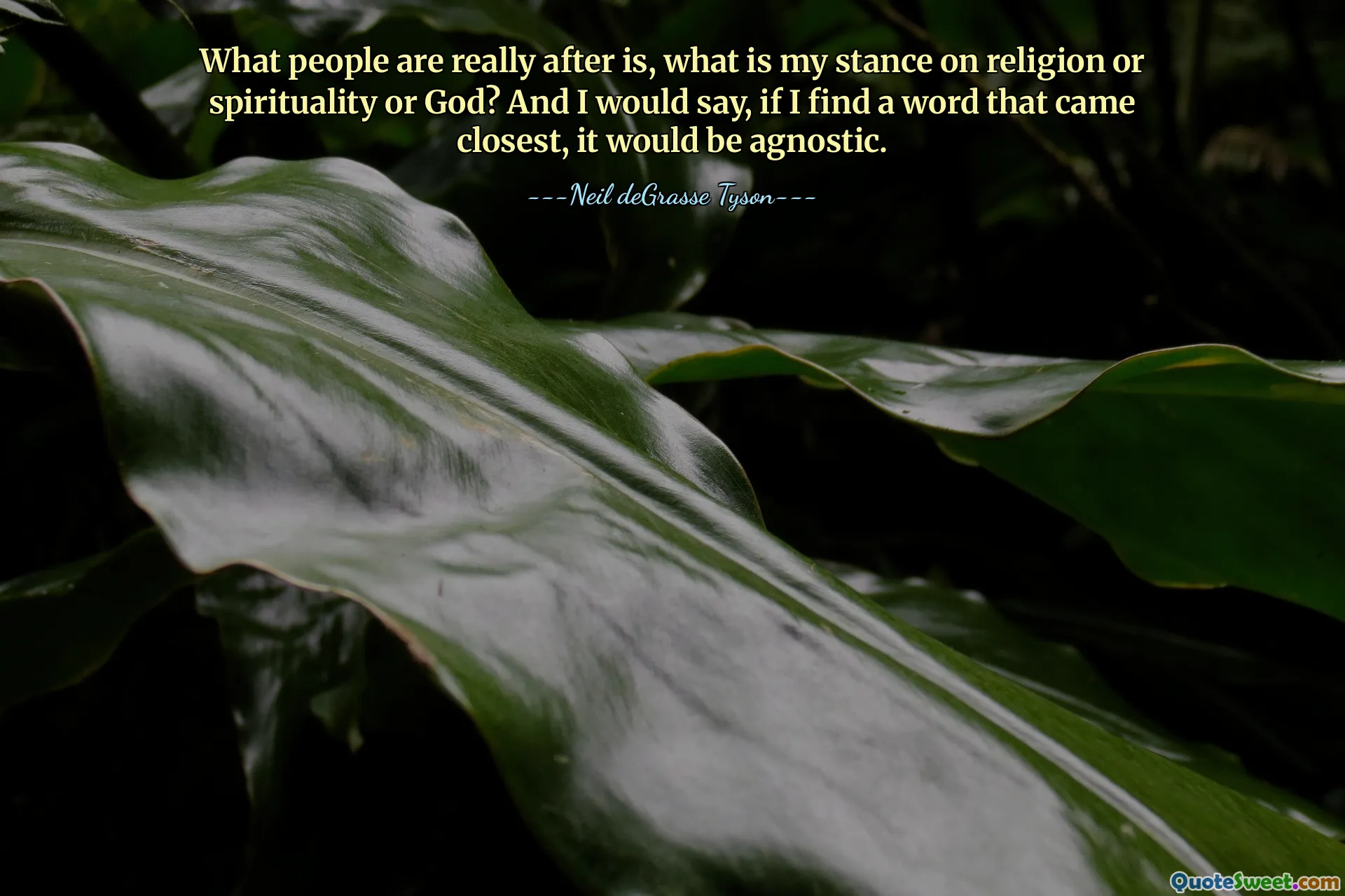
What people are really after is, what is my stance on religion or spirituality or God? And I would say, if I find a word that came closest, it would be agnostic.
This quote from Neil deGrasse Tyson articulates a position that many people find both challenging and liberating—the stance of agnosticism regarding religion, spirituality, and the existence of God. The essence of agnosticism lies in humility and an acknowledgment of uncertainty. Tyson’s approach invites us to recognize that often, the driving curiosity behind conversations about belief centers not merely on the doctrines themselves, but on the deeper question of one’s personal stance toward these profound matters.
His statement reflects an understanding that certainty in these areas is elusive and that faith claims carry significant philosophical and existential weight. Unlike theism or atheism, which assert definitive beliefs, agnosticism embraces the limits of human knowledge and experience, promoting a thoughtful, open-minded exploration of spirituality. This approach resonates deeply in a world where scientific inquiry and evidence-based reasoning coexist with diverse religious traditions.
Tyson’s identification as agnostic suggests an intellectually honest position—not driven by dogma but by a willingness to question and consider multiple perspectives without rushing to conclusions. It challenges us to explore our own beliefs deeply and honestly, and to recognize that navigating the mysteries of existence is a personal journey often devoid of easy answers. Embracing agnosticism thus can be empowering, encouraging ongoing inquiry rather than fixed certainty, which in itself can lead to greater respect for different worldviews and a more nuanced understanding of human spirituality.







